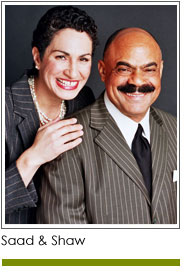 As a donor, what do you want in return for your gift? A letter? Public recognition? Opportunities to meet with like-minded people? Access to the organization’s leadership? A plaque? A pen? Your family’s name on a building?
As a donor, what do you want in return for your gift? A letter? Public recognition? Opportunities to meet with like-minded people? Access to the organization’s leadership? A plaque? A pen? Your family’s name on a building?
As an organization, what do you offer to your donors as a way of thanking them for supporting your work? Do you have a policy that meets the diverse tangible and intangible needs and wants of your donors and prospective donors? Do you offer meaningful recognition to donors at all levels?
There are many schools of thought on this topic. Some are held by donors, others are organizational policy. Some of these are articulated and well defined. Some are unconscious, unspoken or unaddressed.
Here are two exaggerated examples. One is “I believe in the vision and what you are doing and your impact. That is enough. Spend your money and time on your mission and not on me.”
Another is “I always expect to be acknowledged and thanked for my giving. I want to know that my gift means something to you.”
Neither is better. And, there are as many variations on these themes as there are donors.
In the first example, we remind organizations that this request is not an invitation to ignore a donor, neglect to thank him or her, or to not encourage involvement. In the second example, we remind our clients that seeking to raise one’s public profile, honor a family member, or publicize one’s business is not a negative motivation for giving. Like altruism it is one of many motivations and should be respected.
As a donor, what are your expectations? What is important to you? Do you share your expectations with the organizations you give to? For example, with an annual gift do you send an email with your request for anonymity, or your request to visit the organization and learn more about its work? As a major donor, do you let the organization’s representative know that you want to honor your mother with her name on a building and that this is important to your family? Do you ask for a letter detailing the terms related to your gift?
As an organization, have you had a conversation about what types of donor recognition are aligned with your mission and vision? Have you talked with a sample of your donors to learn what is important to them? Have you adopted policies? Are they implemented in a consistent and timely way?
Regardless of policy, here are a few things to consider as it relates to acknowledgement. Take the time to thank your donors and personally acknowledge their giving and how it affects your ability to serve, educate and advocate. When possible, send a handwritten note. Send it today, not six months later.
At the end of the day donor acknowledgement is about understanding and respecting the diversity of reasons that drive people’s giving and how they want to be recognized. It is an important part of the fundraising process.
Copyright 2017 – Mel and Pearl Shaw
Mel and Pearl Shaw are authors of four books on fundraising available on Amazon.com. For help growing your fundraising visit www.saadandshaw.com or call (901) 522-8727.












